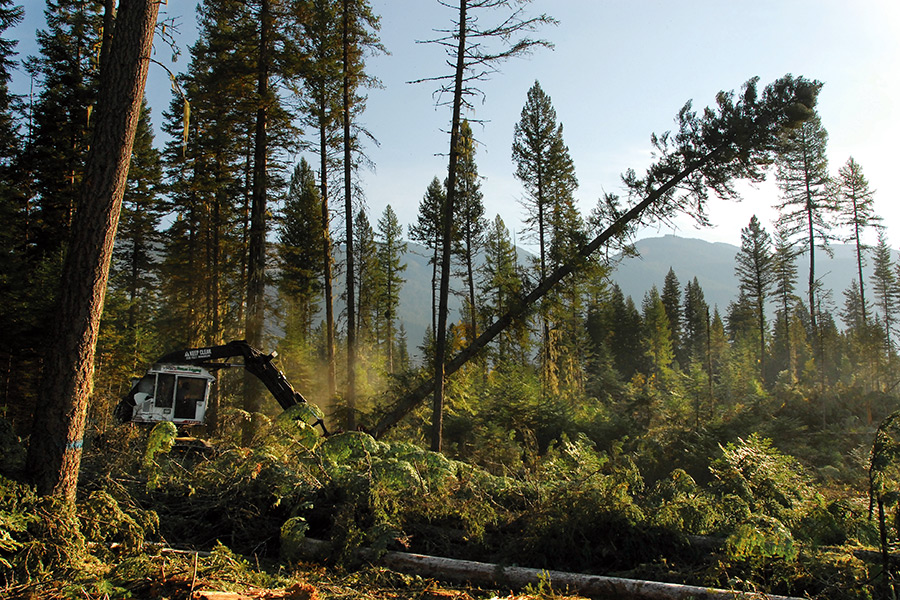A pair of local conservation groups have reprised their arguments over the consequences of logging roads in grizzly bear and bull trout habitat, filing a lawsuit this week in U.S. District Court alleging that federal agencies failed to adequately assess road density under the Flathead National Forest’s long-term management plan.
The new suit, filed May 31 by Friends of the Wild Swan and Swan View Coalition, says the plan’s shortcomings provide the federally protected species with insufficient safeguards. Specifically, it targets a forest management plan adopted by the Flathead National Forest that plaintiffs say allows for significant new roadbuilding without setting a sufficient standard for reclamation after a timber sale is complete. The groups say the U.S. Fish and Wildlife Service’s (FWS) biological opinion greenlighting the plan failed to accurately calculate the density or consider the impact of road development and road use on federally protected species such as grizzly bears and bull trout.
“This isn’t rocket science,” Keith Hammer, chair of Swan View Coalition, said in a prepared statement. “The impacts of roads don’t go away simply because the agencies don’t count those roads in total road density. Fish and Wildlife Service squandered an opportunity to set the record straight by not requiring what gets put on paper to match what is on the ground. The lie continues and we’re forced back into court to disprove it once again.”
The lawsuit lists as defendants Interior Secretary Deb Haaland, FWS Director Martha Williams and the FWS.
In 2019, the same groups challenged the 2018 revised Flathead National Forest Plan, as well as its accompanying Environmental Impact Statement (EIS) and the FWS biological opinion in federal court. In that case, U.S. District Judge Donald Molloy ruled in their favor, writing that the agencies’ analysis of impacts to grizzly bears and bull trout violated the Endangered Species Act (ESA), particularly in its “arbitrary abandonment” of the prior forest plan amendment, Amendment 19, which the agencies credited with conserving the species.
“In response to the 2019 challenge, FWS made a series of minor but inadequate revisions to its biological opinion, which are the basis for today’s suit,” according to Hammer.
“The Fish and Wildlife Service attempted to paper over the deficiencies cited by the court, but the on the ground impacts to bull trout and grizzly bears from roads are real,” added Arlene Montgomery, program director for Friends of the Wild Swan. “They eliminated the very standards that protected bull trout and grizzly bears and replaced them with a scheme that allows more roads to be built. More roads equals less security for griz bears and degraded habitat for bull trout.”
Relying on the analysis in the biological opinion, the Forest Service has advanced numerous logging projects that call for significant new road construction in grizzly bear habitat and bull trout watersheds. While only 3.2 road miles were constructed in grizzly habitat between 1996 and 2010, proposed new projects under the revised Forest Plan include the Mid-Swan (31.9 road miles), Bug Creek (13.3 road miles), Frozen Moose (13 road miles), Lake Five (4.9 road miles), and Spotted Bear Mountain (3.4 road miles) — for a total of 66.5 miles of road construction.
